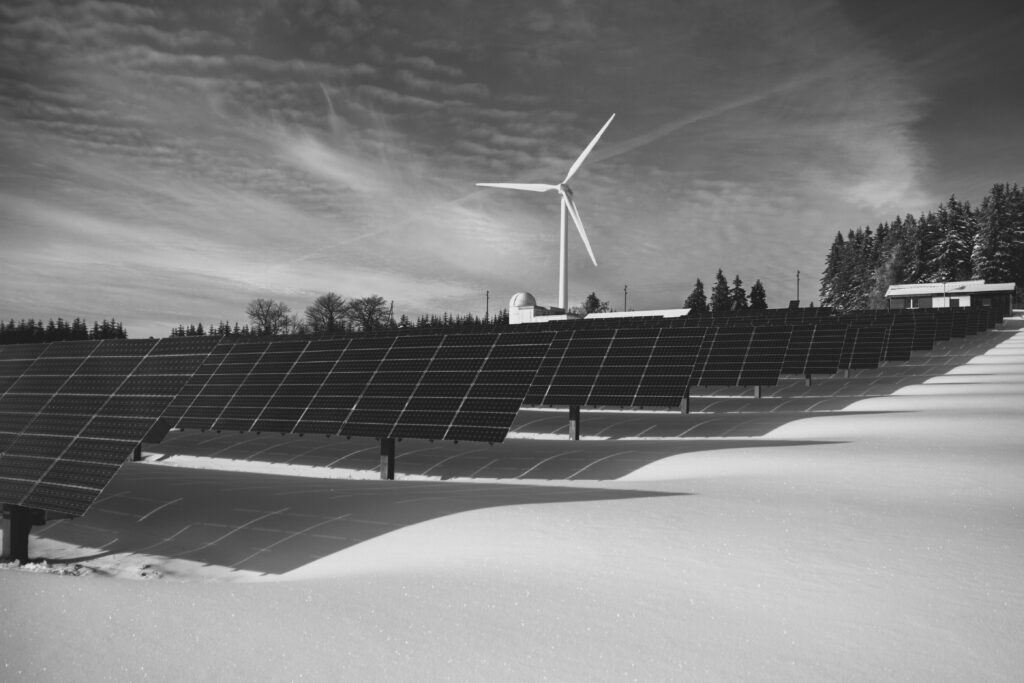Definition Renewable Energy
The famous 5 for all blackout cases. When fossil fuels give up the ghost, the 5 types of renewable energy really start to heat up. Renewable energies contrast with fossil fuels, infinitely available or renew themselves in a short time independently again. Due to these characteristics, renewable energy has become one of the most important sources of electricity in Germany. It forms the pillar of the energy transition and promotes climate neutrality through the power of nature.
The 5 energy sources include:
– Solar energy
– water power
– wind power
– Geothermal and ambient heat
– Bioenergy
Wind and solar energy are the main sources of renewable energy production.
Solar energy systems convert the energy of the sun’s rays into electricity through solar cells. Solar energy systems are currently one of the cheapest energy systems, which is the driving force behind the development of renewable energy. This provides access to solar energy for both businesses and households. In the meantime, therefore, over 2.6 million solar systems have been installed throughout Germany and the trend is increasing.
Wind energy also plays a major role in the expansion of renewable energy. Wind turbines are installed throughout Germany, both on land and at sea, and the given wind power causes the blades of the wind turbines to turn. This drives an electricity generator. This forms the largest share of electricity fed into the grid in Germany.
Advantages of renewable energy
Renewable energy is available almost indefinitely and is self-renewing. This feature conserves the earth’s fossil resources such as coal, oil and natural gas. Renewable energies are also very climate friendly. They help to slow down climate change because very little CO2 emissions are produced during energy generation. Most of these gases are produced by the combustion of fossil fuels. Furthermore, renewable energies are available worldwide and can be mined locally. This removes the dependence on energy imports, which are obtained locally. In addition, renewable energy is cleanly extracted. This means that its extraction poses little risk to the environment.
Disadvantages of renewable energy
The biggest disadvantage is that the 2 main energy sources are very weather dependent. Electricity generation only occurs when the sun is shining, and the wind is blowing. Both conditions take place irregularly at different time intervals and cannot be influenced.
Conclusion
Renewable energies open new possibilities for electricity generation that help to protect the earth and slow down climate change. Thus, fossil fuels can be relieved and the diversity of nature can be used sustainably.

